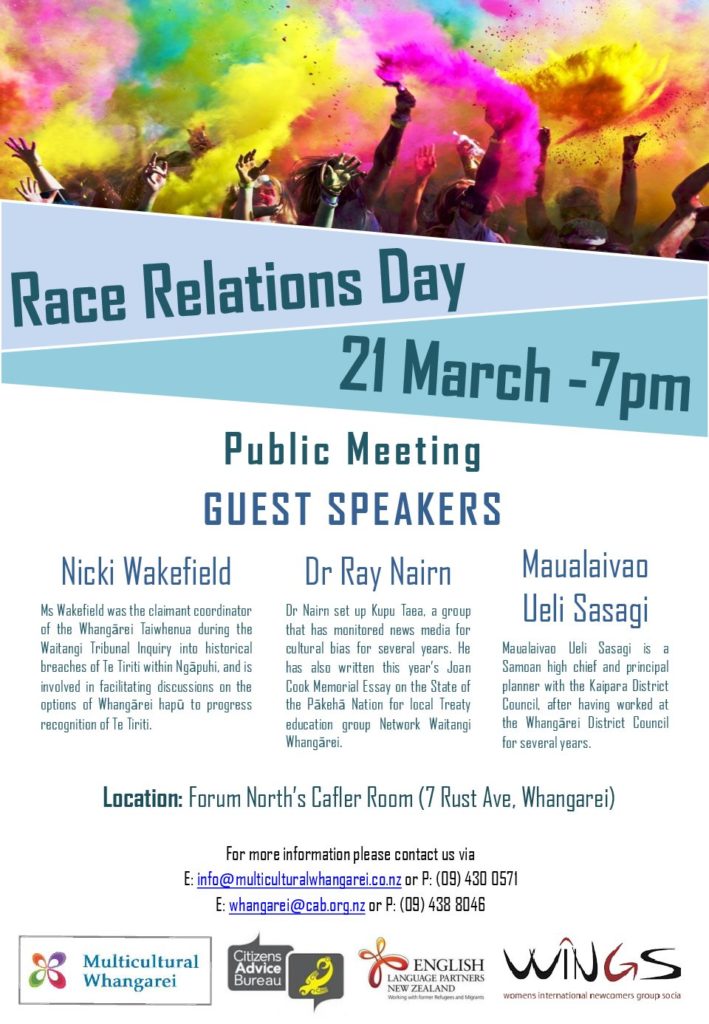Press release
6 March 2019
A day to remember
Race Relations Day on Thursday 21 March will be marked in Whangārei with a free public event featuring three invited speakers, at Forum North’s Cafler Room at 7pm.
The day commemorates South Africa’s Sharpeville massacre in 1960, and is the United Nations’ International Day for the Elimination of Racial Discrimination.
Speakers are Maualaivao Ueli Sasagi, Dr Ray Nairn, and Nicki Wakefield.
Ms Wakefield was the claimant coordinator of the Whangārei Taiwhenua during the Waitangi Tribunal Inquiry into historical breaches of Te Tiriti within Ngāpuhi, and is involved in facilitating discussions on the options of Whangārei hapū to progress recognition of Te Tiriti.
Dr Nairn set up Kupu Taea, a group that has monitored news media for cultural bias for several years. He has also written this year’s Joan Cook Memorial Essay on the State of the Pākehā Nation for local Treaty education group Network Waitangi Whangārei.
Maualaivao Ueli Sasagi is a Samoan high chief and principal planner with the Kaipara District Council, after having worked at the Whangārei District Council for several years.
Each will give a presentation and there will be time for questions from the floor before refreshments.
Organisers are four frontline agencies that support the settlement of migrants into Whangārei – Multicultural Whangārei, Citizens Advice Bureau, English Language Partners, and Women’s International Newcomers Group Social – with the support of the District Council community development team, Northland’s Immigration NZ relationship manager, and Manaia PHO.
Background information
The International Day for the Elimination of Racial Discrimination is observed annually on 21 March. On that day, in 1960, police opened fire and killed 69 people at a peaceful demonstration in Sharpeville, South Africa, against the apartheid pass laws. Proclaiming the Day in 1966, the United Nations General Assembly called on the international community to redouble its efforts to eliminate all forms of racial discrimination.
In 1979, the General Assembly adopted a programme of activities to be undertaken during the second half of the Decade for Action to Combat Racism and Racial Discrimination. On that occasion, the General Assembly decided that a week of solidarity with the peoples struggling against racism and racial discrimination, beginning on 21 March, would be organised annually in all states.
Since then, the apartheid system in South Africa has been dismantled. Racist laws and practices have been abolished in many countries, and there is an international framework for fighting racism, guided by the International Convention on the Elimination of Racial Discrimination.
Contact:
Jessie Manney, Multicultural Whangārei, 430 0571
Moea Armstrong, Citizens Advice Bureau, 4388046


